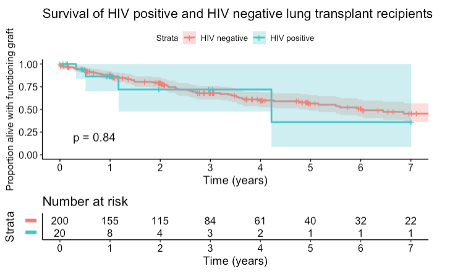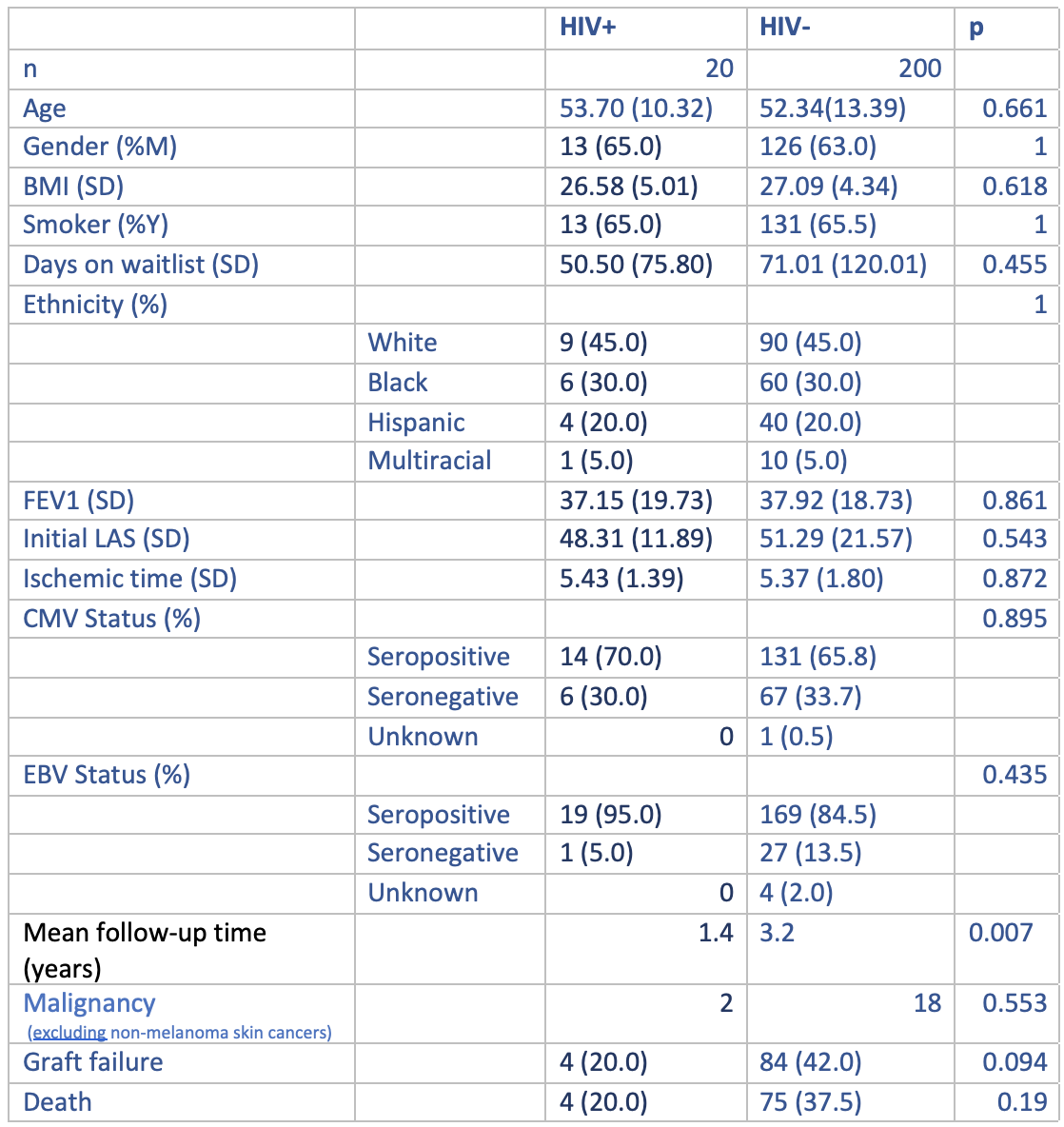Lung Transplantation Outcomes in Recipients Living with HIV in the United States
J. M. Czeresnia1, S. Madan2, M. M. Abbasi3, V. Hemmige1
1Department of Medicine - Division of Infectious Diseases, Montefiore Medical Center, Bronx, NY, 2Department of Medicine - Division of Cardiology, Montefiore Medical Center, Bronx, NY, 3Department of Surgery - Division of Cardiovascular and Thoracic Surgery, Montefiore Medical Center, Bronx, NY
Meeting: 2022 American Transplant Congress
Abstract number: 357
Keywords: Graft failure, HIV virus, Infection, Lung transplantation
Topic: Clinical Science » Infection Disease » 24 - All Infections (Excluding Kidney & Viral Hepatitis)
Session Information
Session Name: Transplant Infectious Diseases: All Organs
Session Type: Rapid Fire Oral Abstract
Date: Monday, June 6, 2022
Session Time: 5:30pm-7:00pm
 Presentation Time: 6:30pm-6:40pm
Presentation Time: 6:30pm-6:40pm
Location: Hynes Ballroom B
*Purpose: To compare outcomes of lung transplantation in HIV-positive and HIV-negative recipients in the United States.
*Methods: A national transplant database (UNOS/SRTR) was queried for cases of lung transplantation in adult (>18 years) HIV+ recipients. These were matched for age, gender, ethnicity, BMI, cigarette use, FEV1 prior to transplant, time on waitlist, and initial lung allocation score (LAS), at a ratio of 1:10 using propensity matching. Group differences in matched criteria was below 10%, except for LAS. Baseline characteristics, survival, and incidence of malignancy were compared using appropriate statistical tests.
*Results: 20 lung transplants in HIV+ adults were identified between 2012 and 2019. 200 lung transplants in HIV- adults with similar characteristics to the HIV+ group were selected for comparison. Median survival after transplantation was similar between groups: 4.22 years (95% CI 1.17-NA) in HIV+ recipients, and 6.04 years (95% CI 4.78-11.1 – p = 0.84) in the HIV-negative group. Follow-up was significantly longer in the HIV- group (3.2 vs. 1.4 years – p = 0.007). Incidence of malignancies following transplantation (excluding non-melanoma skin cancers) was also similar (p = 0.55).
*Conclusions: Outcomes of lung transplantation were similar between HIV+ and HIV- recipients. These data should encourage transplant and infectious diseases providers to consider lung transplantation as a viable option in suitable HIV+ candidates.
To cite this abstract in AMA style:
Czeresnia JM, Madan S, Abbasi MM, Hemmige V. Lung Transplantation Outcomes in Recipients Living with HIV in the United States [abstract]. Am J Transplant. 2022; 22 (suppl 3). https://atcmeetingabstracts.com/abstract/lung-transplantation-outcomes-in-recipients-living-with-hiv-in-the-united-states/. Accessed March 3, 2026.« Back to 2022 American Transplant Congress


